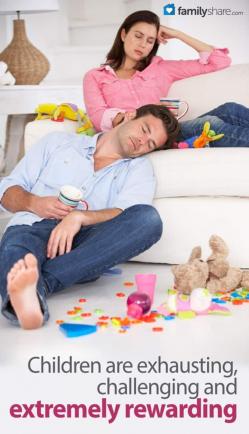
I am a disability advocate and professional with the unique perspective of being an adoptive mom of children with disabilities. My oldest has ADHD accompanied with severe anxiety. We've had some experiences over the years.
In the course of my daily life, I've have had many conversations with others about ADHD with a whole variety of people (professionals, friends, coworkers, clients, etc.) It's usually the same conversation every time.
"Doesn't every kid have ADHD at some point? Kids will be kids ..."
It's true, kids are busy, active and have lots of energy. However, the key difference between a case of "kids will be kids" and ADHD is a question of depth.
It is developmentally appropriate for a preschool-aged child to move around, not be able to sit still, or not be able to listen to a long story. Speech and hearing, separation anxiety, and other basic "growing pains"� can and do affect a non-ADHD child's attention and behavior.
The demands of time management, organization and starting and stopping projects can quickly become overwhelming as a child grows. The increased demands in school and at home can spur behavioral issues. So, logically, what was once deemed as developmentally appropriate is now manifesting itself as a problem - or is it?
With a true case of ADHD, the distraction, high energy, restlessness, jumping around, talking loudly, and disruptiveness is that these impairments are intensely pervasive in every aspect of the child's behavior and occurs often in every setting.
A child with ADHD has pervasiveproblems. By that, I mean to say the problems experienced show up often, last longer, and are more intense than what other children experience.
So how can you know if it's really ADHD? Parents Magazine published an article in its May 2012 issue, which contained a great checklist for helping determine whether or not your child has ADHD.
Every child displays the following behaviors some of the time, but with ADHD the extent of these behaviors makes it difficult to function at all. Ask yourself:
-
Does your child have trouble listening when you ask him or her to do something?
-
Is he or she more easily excitable or fidgety than other kids?
-
Is your home life filled with conflicts over mealtime, bedtime, and brushing teeth?
-
Has your child's teacher raised concerns about his behavior?
-
Is he or she easily distracted? Particularly forgetful?
-
Does he or she blame others for his shortcomings?
-
Does he or she have trouble getting along with friends?
If you're like me and can answer yes to every one of these questions, here's some other useful information and tips that might be useful for you as you and your child confront ADHD.
-
There is a genetic link for ADHD.
-
ADHD is not all genetic. The environment plays a part too. Prenatal drug exposure, smoking, and environmental toxins can contribute to neurological defects present in ADHD. Prenatal smoking alone increases likelihood of ADHD by 20 percent.
-
There's no cure for ADHD, but there are treatments: behavior therapy, parenting skills, and medication. I believe in a comprehensive approach. Pills are not skills. Medication is needed, but alone it is insufficient.
-
Parents need to find out what works with their ADHD-affected children. I have my son look at my eyes before I tell him anything. Sometimes I have to lightly tap him or hold his hand. We do our best to reinforce positive behavior verbally, with incentive charts, and short term rewards.
-
ADHD makes learning difficult. A child who has trouble staying focused can't absorb information the same way as other kids.
-
Teaching specific skills is possible in kids with ADHD, but it takes them longer to learn. Let me repeat, it takes longer to learn, but they can learn skills.
-
The brain looks different in people with ADHD. The part of the brain that helps control behavior and maintain focus is smaller in people with ADHD.
-
ADHD affects a person's working memory. Working memory is the ability to hold information, use it to solve a problem and demonstrate a related skill. For instance, if my son repeats and repeats information it makes it to his long-term memory. But asking him to repeat something I just said is very difficult for him.
Even though ADHD has presented challenges for my children and our family life, at the end of the day, I love my children. Being with them is exhausting, challenging and extremely rewarding. I love their unique gifts and appreciate their challenges.

